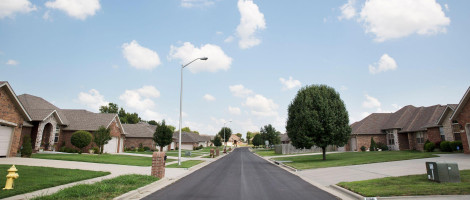By Jacob West, Pastor of First Baptist Church of Stamford
About to rupture
Every summer my family heads to the beach for a week to relax and recharge. The waves provide never-ending delight for our children. Smiles stretch across their tanned faces throughout our time together. Before leaving this past summer, I took our aged GMC Yukon in for an inspection. Once the Yukon passed inspection, the West family was on its way. The trip went routinely. I knew the way.
Along the route we stopped at a gas station and I began to fill the tank. As I finished cleaning the windows, the pump shut off, but something was wrong. Unbeknownst to me, the top of the Yukon’s tank ruptured and gasoline began to spew out, creating a dangerous situation.
Did you know a gas tank has a pressure release valve and a pressure sensor? When the pressure sensor senses too much pressure, the valve releases that pressure. A clogged valve means the pressure cannot release, and a rupture will soon follow.
Does your ministry feel like a clogged fuel tank about to rupture? You have no more room, no more time, and no more heart.
Running out of time
This is the oft-told story of a pastor or church staff member. God calls a person to the ministry, and he or she is ambitious and eager. As the minister takes the first steps along God’s call, dates and times become important. He or she senses pressure to keep up with every request. After all, forgotten dates and forgotten times translate to missed ministry opportunities and diminished trust.
John Claypool wrote in Mending the Heart, “Someone has said that all grief comes back to this: we run out of time.”
A full calendar requires energy, creativity and love. Responding to the needs of ministry requires a great depth of energy. The needs of ministry are not the only needs before the pastor or staff member. Family and personal life add to the mix too. To give adequate attention to major needs, while combining the family calendar, the personal calendar, and the ministry calendar requires creativity. Energy and creativity need direction, and it is love that points creativity and energy in the right direction.
Love
Paul in 1 Corinthians 13 presented a relational triangle to describe how to walk with God. A follower of Christ can start at faith, but then he or she moves around the triangle to hope and love. A Christian starts at hope and then moves around the triangle to love and faith. Relating to God’s way requires all three, but Paul clearly said that love rose above faith and hope.
A minister can possess faith and hope, but if love is missing, everything is missing. Organizing our response to God’s call takes on a parallel track. We can muster vast energy and creativity, but without love, we are a clanging cymbal and noisy gong.
As we think about love more fully, let’s turn to Matthew’s story. In his Gospel, Matthew introduced some notorious cymbals and gongs known as the Pharisees. The Pharisees sought to trick Jesus with questions, but His timeless response outlined the vision for those wanting to abide with God and live out His commandments. Jesus simplified the commandments down to two.
“‘You shall love the Lord your God with all your heart, and with all your soul, and with all your mind.’” Jesus then gave a second commandment saying, “You shall love your neighbor as yourself.”
Don’t lose heart
The commandments are not impossible, but the vision to love God and neighbor is daunting. If we try to determine which of the two commandments poses the greater challenge, let’s consider how loving our neighbor is perhaps the most challenging in terms of our daily life.
To love God we approach a Trinitarian being with no glaring need. God is not hungry, thirsty, lonely, naked or in prison. Meanwhile, our neighbors have a pile of needs rising like a college student’s laundry pile. A minister will encounter racial unrest, political gridlock, job loss and cancer, along with hunger, thirst, loneliness, poverty and imprisonment. When we bump up against that pile of needs, the needs often collide with a ministerial heart that has no more room.
Thinking about Claypool’s quote from a different angle, ministers feel grief because we have no more room in our hearts to give. If this is you, as it has been me, let us pray what we read in Hebrews, “For consider Him (Jesus) who has endured such hostility by sinners against Himself, so that you will not grow weary and lose heart.” Hebrews 12:3
Let us pray that we would not lose heart as we seek to love our neighbor.
West currently serves as the Chair of the Christian Life Commission. To learn more about the CLC, visit texasbaptists.org/clc.
Texas Baptists is a movement of God’s people to share Christ and show love by strengthening churches and ministers, engaging culture and connecting the nations to Jesus.
The ministry of the convention is made possible by giving through the Texas Baptists Cooperative Program, Mary Hill Davis Offering® for Texas Missions, Texas Baptists Worldwide and Texas Baptist Missions Foundation. Thank you for your faithful and generous support.
Subscribe to receive stories like this one directly to your inbox.
We are more together.
